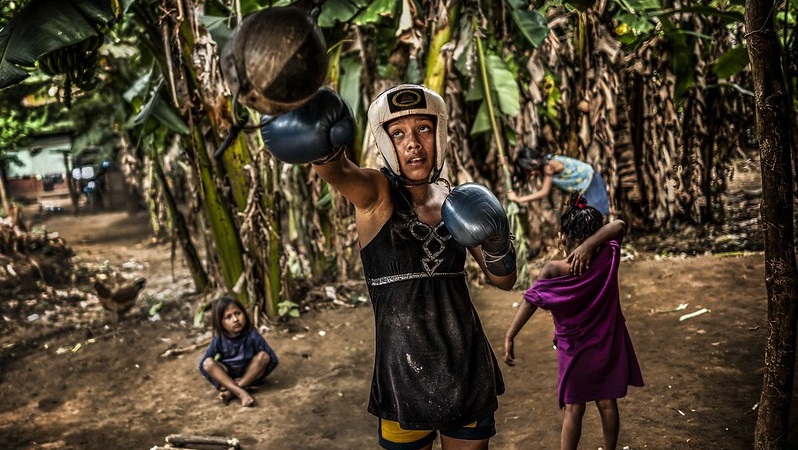Sign up to get our weekly newsletter straight to your inbox, plus breaking news, investigations and extra bulletins from key events
Indigenous peoples are widely recognised as nature’s best stewards. The land they inhabit contains an estimated 80% of the world’s remaining biodiversity.
They can make a significant contribution to global efforts to address the climate crisis – if their rights are protected.
The Green Climate Fund – the UN’s flagship climate fund – is being put to the test to heed this call.
Indigenous representatives have complained that one of the fund’s projects in Nicaragua risks fuelling escalating violence from settlers invading their land to farm cattle and exploit the forest’s resources. They say the GCF approved the project without their consent or due diligence.
Last week, armed settlers reportedly attacked two communities and killed at least five people. The Nicaraguan government has turned a blind eye.
This is the first complaint case to reach the GCF board and a test of the fund’s ability to enforce its own safeguards.
Because of its sensitivity, board members discussed the case behind closed doors at a meeting this week. But the meeting drew to a close Thursday without a public outcome to the growing frustration of civil society groups. Meanwhile, the violence continues.
Also this week, Mafalda Duarte was selected to take the reins of the GCF’s secretariat from French UN veteran Yannick Glemarec. As CEO of the Climate Investment Funds, Duarte has launched programmes that provide direct financing for indigenous communities to protect natural resources.
Perhaps, these are some of the skills she can bring to the GCF.
This week’s stories
- Green Climate Fund credibility hangs over response to violence in Nicaragua project
- Loss and damage committee ready to start talks following Asian nominations
- Argentina secures funding boost to kickstart gas exports from ‘carbon bomb’
- IMF approves first batch of climate resilience loans
- Lawyers and activists build pressure on Korean court to rule on climate
- Chinese coal boom a ‘direct threat’ to 1.5C goal, analysts warn
- Mafalda Duarte named as next chief of UN climate fund
- Vietnam’s energy transition deal is a ‘black box’, partner warns
The expansion of fossil fuel production continues to cause significant harm to indigenous peoples around the world.
In Argentina, campaigners say president Alberto Fernández’s plans to export record amounts of gas from the Vaca Muerta fields will further trample the rights of indigenous Mapuche people.
The Latin American Development Bank recently agreed to support the Néstor Kirchner pipeline, which will channel gas to Argentina’s northern Santa Fé province for export to neighbouring countries. Fernández is also eyeing exports to Europe amid plans to build an LNG terminal in Buenos Aires.
This fossil fuel buildout and a renewed coal boom in China risks pushing the world towards more violent climate disasters. As Malawi reels from what could be the longest-lasting tropical storm on record, we are once again reminded that the most vulnerable will suffer first.
Read More

